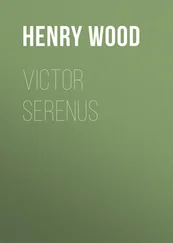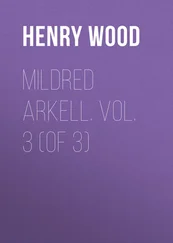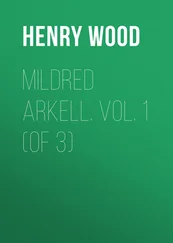Henry Wood - Trevlyn Hold
Здесь есть возможность читать онлайн «Henry Wood - Trevlyn Hold» — ознакомительный отрывок электронной книги совершенно бесплатно, а после прочтения отрывка купить полную версию. В некоторых случаях можно слушать аудио, скачать через торрент в формате fb2 и присутствует краткое содержание. Жанр: foreign_prose, literature_19, foreign_antique, на английском языке. Описание произведения, (предисловие) а так же отзывы посетителей доступны на портале библиотеки ЛибКат.
- Название:Trevlyn Hold
- Автор:
- Жанр:
- Год:неизвестен
- ISBN:нет данных
- Рейтинг книги:4 / 5. Голосов: 1
-
Избранное:Добавить в избранное
- Отзывы:
-
Ваша оценка:
- 80
- 1
- 2
- 3
- 4
- 5
Trevlyn Hold: краткое содержание, описание и аннотация
Предлагаем к чтению аннотацию, описание, краткое содержание или предисловие (зависит от того, что написал сам автор книги «Trevlyn Hold»). Если вы не нашли необходимую информацию о книге — напишите в комментариях, мы постараемся отыскать её.
Trevlyn Hold — читать онлайн ознакомительный отрывок
Ниже представлен текст книги, разбитый по страницам. Система сохранения места последней прочитанной страницы, позволяет с удобством читать онлайн бесплатно книгу «Trevlyn Hold», без необходимости каждый раз заново искать на чём Вы остановились. Поставьте закладку, и сможете в любой момент перейти на страницу, на которой закончили чтение.
Интервал:
Закладка:
"He is dead!" broke forth Nora; "and perhaps there may be some that will wish now they had been less hard with him in life. The doctors and Mrs. Ryle have just come out, and the women have gone in to put him straight and comfortable. Mr. Chattaway can go in also, if he would like it."
Mr. Chattaway, it appeared, did not like it. He turned from the door, drawing George with him.
"George, tell your mother I am grieved at her trouble, and wish that beast of a bull had been stuck before he had done this. Tell her if there's any little thing she could fancy from the Hold, to let Edith know, and she'll gladly send it to her. Good-bye, lad. You and Treve must keep up, you know."
He passed out by the fold-yard gate, as he had entered, and George leaned upon it again, with his aching heart; an orphan now. Treve and Caroline had their mother left, but he had no one. It is true he had never known a mother, and Mrs. Ryle, his father's second wife, had supplied the place of one. She had done her duty by him; but it had not been in love; nor very much in gentleness. Of her own children she was inordinately fond; she had not been so of George—which perhaps was in accordance with human nature. It had never troubled George much; but the fact now struck upon him with a sense of intense loneliness. His father had loved him deeply and sincerely: but—he was gone.
In spite of his heavy sorrow, George was awake to sounds in the distance, the everyday labour of life. The cow-boy was calling to his cows; one of the men, acting for Jim Sanders, was going out with the team. And now there came a butcher, riding up from Barmester, and George knew he had come about some beasts, all unconscious that the master was no longer here to command, or deal with. Work, especially farm work, must go on, although death may have accomplished its mission.
The butcher, riding fast, had nearly reached the gate, and George was turning away to retire indoors, when the unhappy thought came upon him—Who is to see this man? His father no longer there, who must represent him?—must answer comers—must stand in his place? It brought the fact of what had happened more practically before George Ryle's mind than anything else had done. He stood where he was, instead of turning away. That day he must rise superior to grief, and be useful; must rise above his years in the future, for his step-mother's sake.
"Good morning, Mr. George," cried the butcher, as he rode up. "Is the master about?"
"No," answered George, speaking as steadily as he could. "He will never be about again. He is dead."
The butcher thought it a boy's joke. "None of that, young gentleman!" said he, with a laugh. "Where shall I find him?"
"Mr. Cope," said George, raising his grave face—and its expression struck a chill to the man's heart—"I should not joke upon the subject of death. My father was attacked by Chattaway's bull yesterday evening, and has died of the injuries."
"Lawk-a-mercy!" uttered the startled man. "Attacked by Chattaway's bull! and—and—died of the injuries! Surely it can't be so!"
George had turned his face away; the strain was getting too much for him.
"Has Chattaway killed the bull?" was the man's next question.
"I suppose not."
"Then he is no man and no gentleman if he don't do it. If a beast of mine injured a neighbour, I'd stay him from injuring another, no matter what its value. Dear me! Mr. George, I'd rather have heard any news than this."
George's head was quite turned away now. The butcher roused himself to think of business. His time was short, for he had to be in the town again before his shop opened for the day.
"I came up about the beasts," he said. "The master as good as sold 'em to me yesterday; it was only a matter of a few shillings split us. But I'll give in sooner than not have 'em. Who is going to carry on the dealings in Mr. Ryle's place? Who can I speak to?"
"You can see John Pinder," answered George. "He knows most about things."
The man guided his horse through the fold-yard, scattering the cocks and hens, and reached the barn. John Pinder came out to him; and George escaped indoors.
It was a sad day. The excitement over, the doctors departed, the gossipers and neighbours dispersed, the village carpenter having come and taken certain measures, the house was left to its monotonous quiet; that distressing quiet which tells upon the spirits. Nora's voice was subdued, Molly went about on tiptoe. The boys wished it was over; that, and many more days to come. Treve fairly broke bounds about twelve, said he could not bear it, and went out amongst the men. In the afternoon George was summoned upstairs to the chamber of Mrs. Ryle, where she had remained since the morning.
"George, you must go to Barmester," she said. "I wish to know how Caroline bears the news, poor child! Mr. Benage said he would call and break it to her; but I cannot get her grief out of my head. You can go over in the gig; but don't stay. Be home by tea-time."
It is more than probable that George felt the commission as a relief, and he started as soon as the gig was ready. As he went out of the yard, Nora called after him to be careful how he drove. Not that he had never driven before; but Mr. Ryle, or some one else, had always been in the gig with him. Now he was alone; and it brought his loss again more forcibly before him.
He reached Barmester, and saw his sister Caroline, who was staying there on a visit. She was not overwhelmed with grief, but, on the contrary, appeared to have taken the matter coolly and lightly. The fact was, the little girl had no definite ideas on the subject of death. She had never been brought into contact with it, and could not at all realise the fact told her, that she would never see papa again. Better for the little heart perhaps that it was so; sorrow enough comes with later years; and Mrs. Ryle judged wisely in deciding to keep the child where she was until after the funeral.
When George reached home, he found Nora at tea alone. Master Treve had chosen to take his with his mother in her chamber. George sat down with Nora. The shutters were closed, and the room was bright with fire and candle; but to George all things were dreary.
"Why don't you eat?" asked Nora, presently, perceiving the bread-and-butter remained untouched.
"I'm not hungry," replied George.
"Did you have tea in Barmester?"
"I did not have anything," he said.
"Now, look you here, George. If you are going to give way to–Mercy on us! What's that?"
Some one had entered hastily. A lovely girl in a flowing white evening dress and blue ribbons in her hair. A heavy shawl fell from her shoulders to the ground, and she stood panting, as one who has run quickly, her fair curls falling, her cheeks crimson, her dark blue eyes glowing. On the pretty arms were coral bracelets, and a thin gold chain was on her neck. It was Maude Trevlyn, whom you saw at Trevlyn Hold last night. So out of place did she look in that scene, that Nora for once was silent, and could only stare.
"I ran away, Nora," said Maude, coming forward. "Octave has a party, but they won't miss me if I stay only a little time. I have wanted to come all day, but they would not let me."
"Who would not?" asked Nora.
"Not any of them. Even Aunt Edith. Nora, is it true ? Is it true that he is dead?" she reiterated, her pretty hands clasped with emotion, her great blue eyes cast upwards at Nora, waiting for the answer.
"Oh, Miss Maude! you might have heard it was true enough up at the Hold. And so they have a party! Some folk in Madam Chattaway's place might have had the grace to put it off, when their sister's husband was lying dead!"
"It is not Aunt Edith's fault. You know it is not, Nora. George, you know it also. She has cried very much to-day; and she asked long and long ago for the bull to be sent off. But he was not sent. Oh, George, I am so sorry! I wish I could have seen him before he died. There was no one I liked so well as Mr. Ryle."
Читать дальшеИнтервал:
Закладка:
Похожие книги на «Trevlyn Hold»
Представляем Вашему вниманию похожие книги на «Trevlyn Hold» списком для выбора. Мы отобрали схожую по названию и смыслу литературу в надежде предоставить читателям больше вариантов отыскать новые, интересные, ещё непрочитанные произведения.
Обсуждение, отзывы о книге «Trevlyn Hold» и просто собственные мнения читателей. Оставьте ваши комментарии, напишите, что Вы думаете о произведении, его смысле или главных героях. Укажите что конкретно понравилось, а что нет, и почему Вы так считаете.












